What is Skin Probiotics?
Humans are a host to several groups of microbes that reside inside the body and on the skin surface. These massive numbers of microbes coexist in the human body and are known as the microbiome. Bacteria have been considered harmful to health in the past. However, the latest research shows that not all bacteria are bad.
Both bacterial and fungal species present in the microbiome offer several health benefits. Many of these microbes help resolve skin issues and promote its overall health as well. That is why there has been special attention to products that provide these beneficial microbes. One such thing is Probiotics, which are the beneficial microbes that can provide vital nutrients and contain the infectious agents in the skin.
The World Health Organization (WHO) defines probiotics as live microbes that provide health benefits to host when taken in certain amounts.
The natural sources of skin probiotics are fermented foods while their supplements are also available. Over the past few months, probiotics for the topical application have also become popular. Although the definition stresses on ‘live’ microorganisms, current evidence indicates that bacterial cell wall or extracts can also offer health benefits.
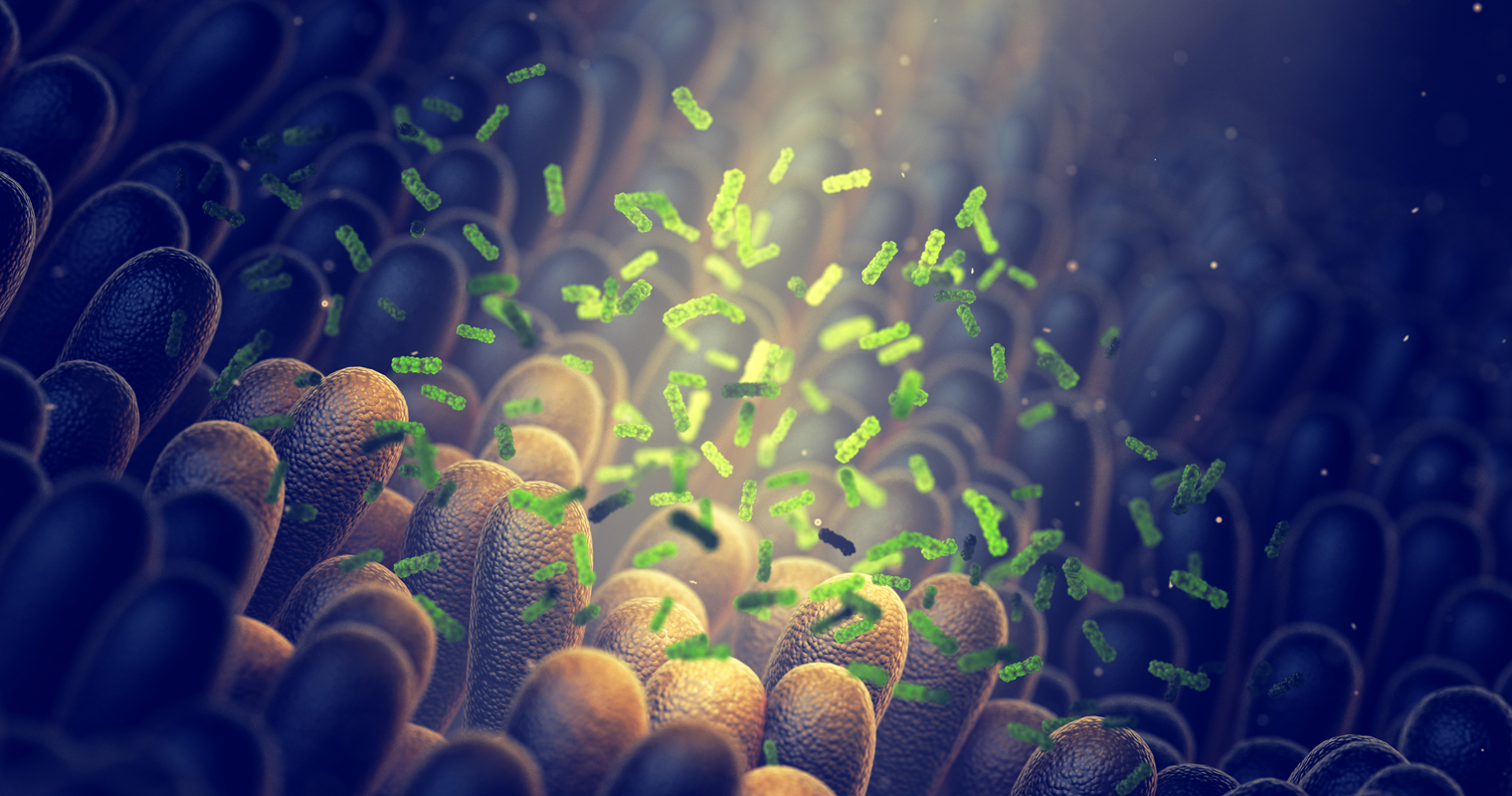
Why Probiotics are important for your skin?
Skin is the largest organ of the human body and the first line of defense against the unfavorable external environment. Probiotics help regulate inflammation and protect the skin against pathogens. They play a significant role in improving skin health.
They can help improve atopic eczema, healing of scars and burns, atopic dermatitis, skin’s overall immunity, and its rejuvenating capability. Evidence shows that bacterial cell wall fragments, dead bacteria, and metabolites can prompt specific immune responses in the skin. They also improve skin barrier functions.
Probiotic benefits for your skin
Probiotics offer numerous benefits for the skin. Studies show that probiotic bacteria can accelerate the recovery from ultraviolet-induced skin damage. They also protect against harmful UV rays. These microbes also promote skin health by improving immunity and rendering it hydrated.
These benefits mainly originate from the bacterial compounds present in probiotics. Here are a few compounds provided by microbes that are good for skin health.
1. Hyaluronic Acid
Hyaluronic acid (HA) is found in the human skin where it maintains the structure of the stratum corneum—outer layer of the skin. It also promotes the skin’s barrier functions and accelerates tissue repair. HA has a high water binding capacity, which means it keeps the skin hydrated and healthy. It also helps alleviate inflammation. One study of 76 women aging between 30 and 60 years finds that the topical application of HA improves skin elasticity and hydration. It also reduces wrinkle depth and increases the skin’s defense mechanism. Moreover, it accelerates wound repair and manifests antioxidant properties. The wound healing properties of HA are mainly attributed to its moisture retention ability.
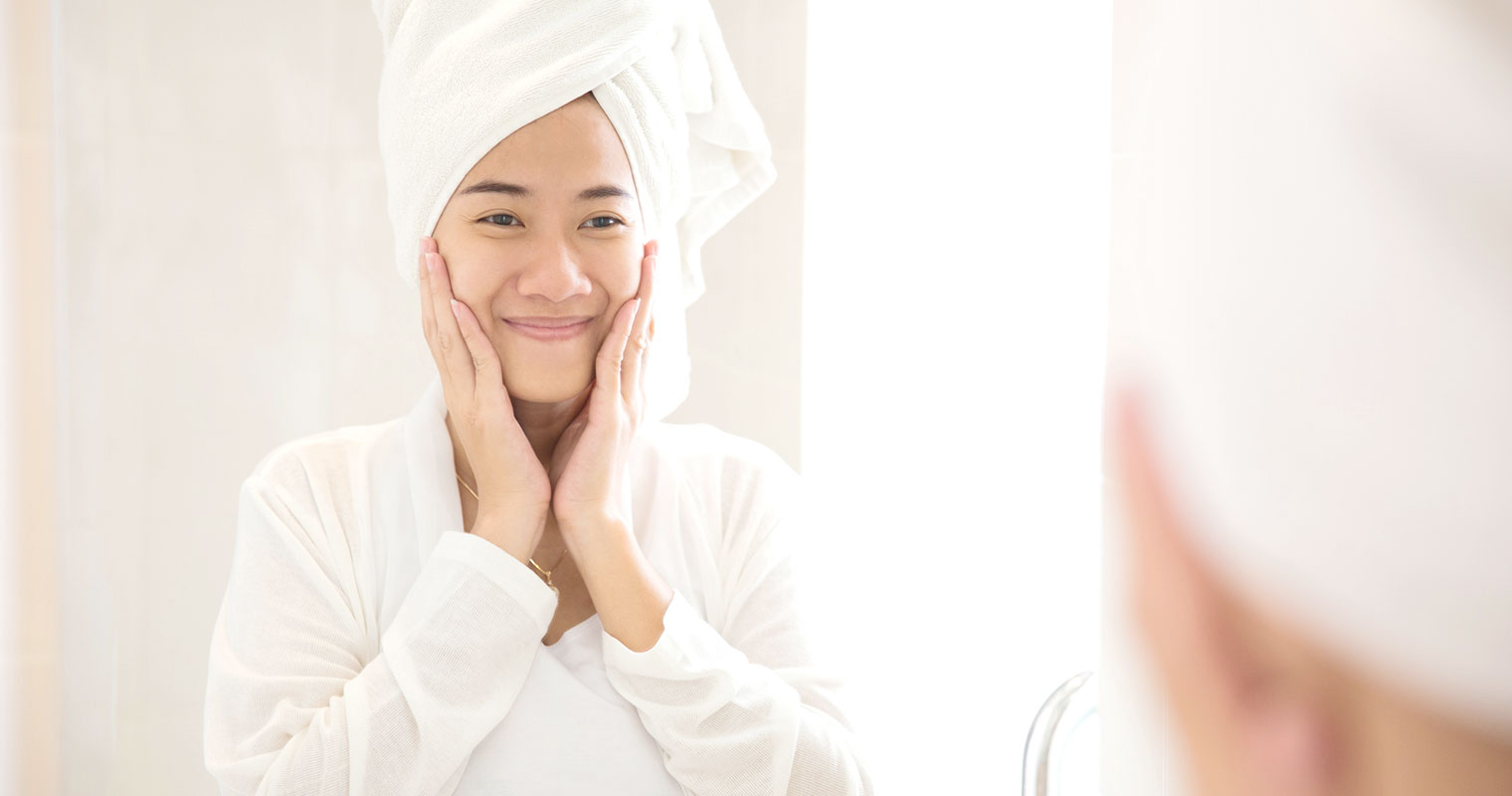
2. Sphingomyelinase
Sphingomyelinase (SMase) is an enzyme that is crucial for skin barrier function. It generates ceramides, whose deficiency can cause water loss and barrier dysfunction in the stratum corneum. Reduced ceramides can also lead to the loss of protection against bacteria and antigens. It can also contribute to atopic, contact, and irritant dermatitis as well as psoriasis.
Hence SMase is critical for skin health. Its ample presence can be ensured by using probiotics. Decreased activity of this enzyme can also be a reason for skin aging.
3. Lipoteichoic Acid (LTA)
LTA composes the Gram-positive bacterial cell wall. Its topical application can stimulate the skin’s defense against pathogens. It manifests antimicrobial activity, which keeps the skin bacterial infections at bay.
4. Peptidoglycan (PG)
PG is another structural component of the bacterial cell wall. It plays a crucial role in protecting the skin against microbes and stimulates the organ’s immune system.
5. Lactic Acid
This one is an organic acid, which is attained through chemical synthesis or microbial fermentation. It manifests antimicrobial activity against the majority of pathogenic bacteria on the skin.
Because of its benefits, lactic acid has been used in skin products for many years, like exfoliants and moisturizers. It is also used as a chemical peeling agent. It promotes the youthfulness of skin by shedding the epidermis and promoting cell growth. It is also used for the treatment of photo-aging, dry skin, and acne.
6. Acetic Acid
Acetic acid is produced by both bacterial fermentation and synthetic processes. It has antibacterial properties. Studies show that topical application of this compound eliminates the pathogens from the burns and wounds, thus keeping them safe from infections.
7. Diacetyl
It is produced by certain bacteria like Streptococcus and Pediococcus. It manifests dermal antimicrobial activities against several pathogens, including Staphylococcus aureus which is the leading cause of skin infections.
Probiotics helps relieve skin issues
Whether consumed orally or applied topically, probiotics are useful in treating several skin issues. They help regulate the skin’s immune system, keep it hydrated, and promote cell growth. Here are the skin issues that probiotics help relieve:
1. Acne
There are many benefits of probiotics for acne. Acne formation owes to several factors like excessive sebum (oil) production, follicular hyperkeratinization—accumulation of keratin (protein) in hair follicles, the activity of microbes like Propiobacterium acnes, and inflammation.

Probiotics can help alleviate all these factors. A probiotic can directly inhibit the activity of P.acnes because of its antibacterial properties. Not just P.acnes but probiotics can also inhibit the growth of other bacteria causing acne, like Staphylococcus epidermidis. The topical application of these ‘good bacteria’ also modifies the skin’s barrier function and enhances its antimicrobial properties.
Evidence shows that probiotics also reduce the counts of P.acnes on the skin’s surface. They also help restore healthy fats in the skin by generating healthy ceramides. Maintaining hydration and soothing inflammation is crucial for acne treatment. Both functions are performed well by probiotics. Studies show that these bacteria also reduce inflammation significantly.
For instance, a clinical trial to assess the effects of probiotics observed 300 patients. The participants were administered an oral probiotic; 80 percent of them experienced an improvement in their acne symptoms, majorly inflammation. Another recent clinical trial of 45 women aged 18 to 35 years with acne showed continued improvement after taking oral probiotics for three months.
Probiotic acne treatment does not entail any side effects usually associated with conventional acne therapies. The topical regimens to contain acne disrupt the skin barrier function, which leads to irritation and dryness. Probiotics’ ability to restore healthy fats helps with keeping the skin hydrated and thus prevents the usual side effects of acne therapies.
2. Rosacea
Rosacea is a skin condition characterized by redness, prominent blood vessels, and small, pus-filled bumps on the face. Impaired skin barrier function is a major feature of this condition. Its symptoms improve with the strengthening of the skin barrier. As probiotics strengthen the skin barrier, prevent water loss, and retain moisture, they can help a lot with rosacea.
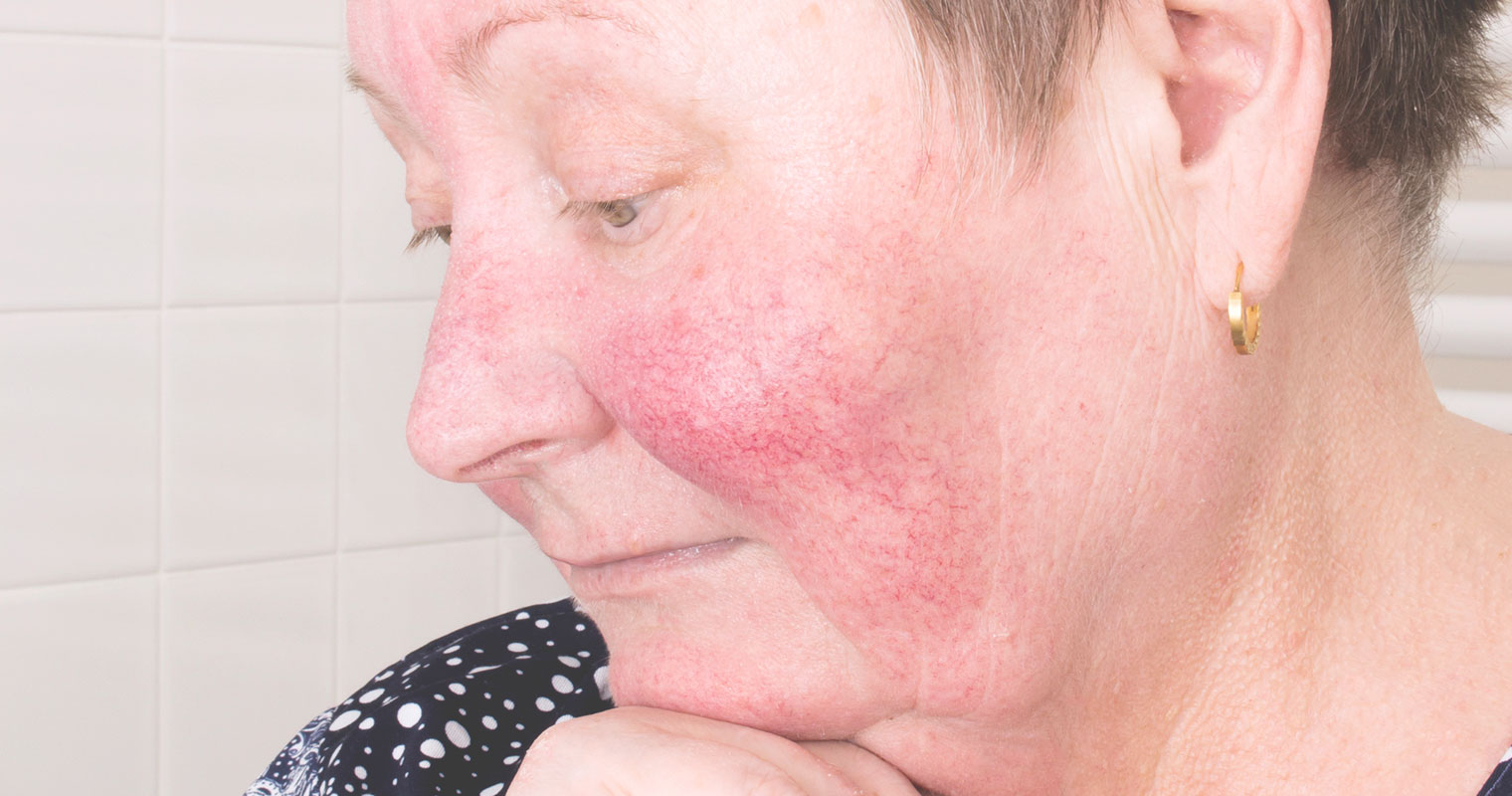
One study evaluated the effect of the oral probiotic supplements on skin sensitivity, water loss (across the epidermis), and skin barrier function. The healthy female participants were divided into two groups: probiotics and placebo. The probiotic group experienced significant improvement in both sensitivity and barrier function. The skin integrity of this group also improved to a great extent.
The immune-boosting properties of probiotics also help alleviate rosacea. That is because the improved immunity is also projected to anti-inflammatory and anti-microbial capacities as well. People with rosacea undergo increased inflammatory responses, which are mitigated by the activity of a probiotic.
One study shows that oral probiotics can help treat ocular (relating to vision or eye) and scalp rosacea. They target the pathogenic bacteria, which several studies have associated with the aforementioned skin condition.
3. Eczema
Atopic eczema, or atopic dermatitis (AD), is an inflammatory skin condition prevalent in children. It is generally associated with asthma and food allergies. The major symptoms include itchiness and reduced skin barrier function, which causes allergen exposure and dry skin.
Because of eczema, allergens can easily permeate the stratum corneum. In this condition, pathogenic microorganisms increase in` presence and infect the person frequently. Eczema is also associated with gut microbiota, especially in infants with a higher risk of contracting AD.
The antimicrobial activity of probiotics helps reduce and prevent the growth of pathogens. A recent study shows that taking a combination of probiotics supplements, i.e., L.rhamnosus and L.reuteri reduces the severity of eczema by 56 percent.
Another study in women finds that consuming L.rhamnosus as a supplement for four weeks before delivery and six months after can drastically reduce the risk of developing eczema among children.
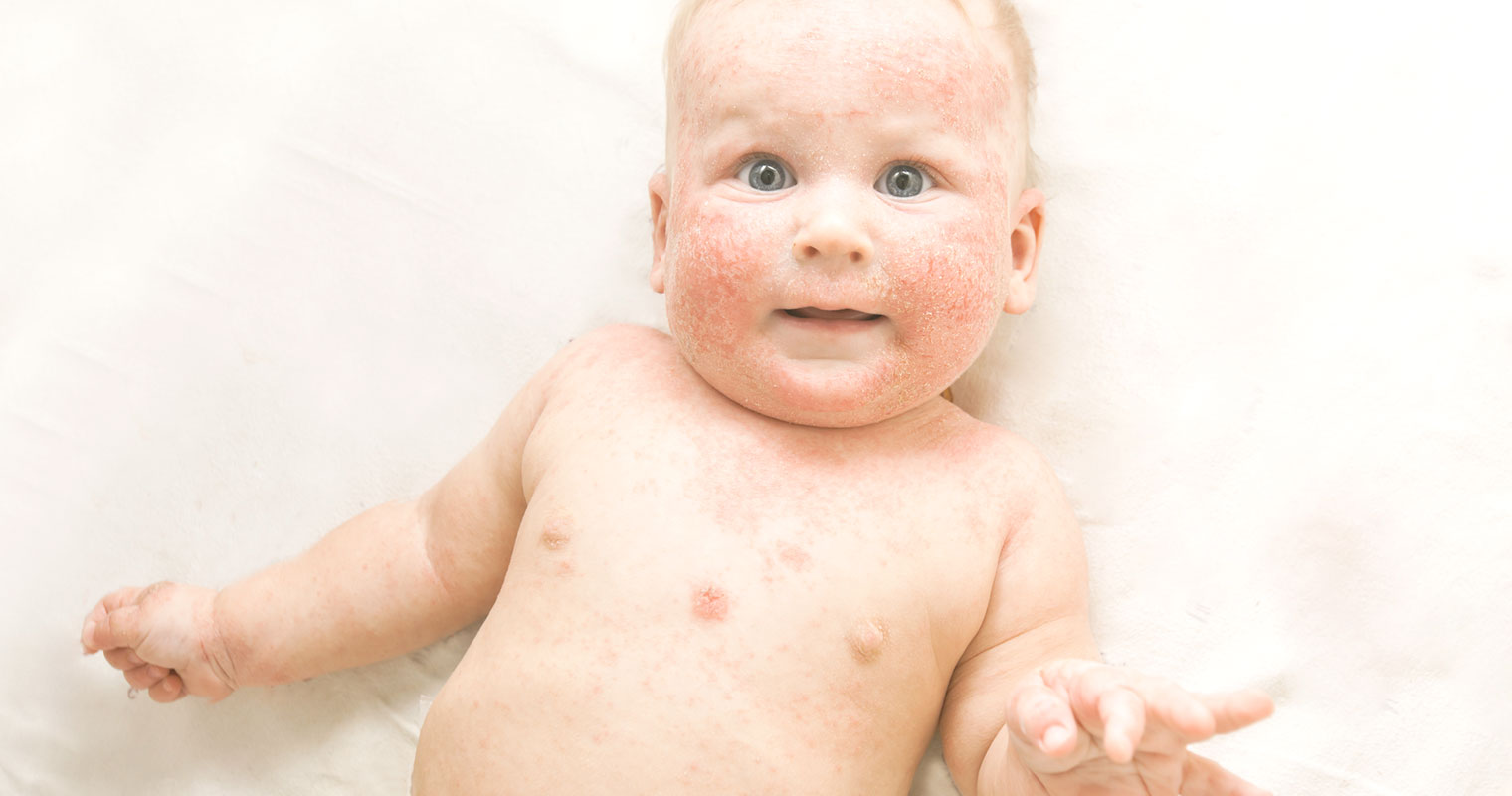
Probiotics reduce visible signs of skin aging
Evidence shows that probiotics can help fight skin aging. The skin becomes dry with age, which makes the environment conducive for bacterial growth. The ultraviolet rays from the sun also contribute to early skin aging along with stress and pollution. The UV damage also disrupts the skin’s defense mechanism against free radicals, which are a normal result of the metabolic process. Aging causes the skin’s pH to increase, which also reduces its ability to cope with oxidative stress.
Research shows that probiotics feed the microbiome on the human body and help battle the free radicals. They also alter several features of skin aging. Aging, especially extrinsic aging (caused by external factors like pollutants and UV) leads to several changes like inflammation, immune dysfunction, dryness, wrinkles, and photoaging.
Probiotics have an intrinsic capacity to boost immunity, alleviate and prevent inflammation, and keep the skin hydrated. Hence, they can deal with the aforementioned effects of skin aging. Apart from these traits, probiotics can also help deal with photoaging (UV-induced changes in the skin’s structure).
Study shows that certain probiotics can help restore skin’s defense mechanism even after UV damage.

Probiotics act as a protective shield for your skin
The microorganisms on the skin have a certain balance that keeps it healthy. This balance is achieved in childhood and any disturbance to it can lead to certain skin issues. The microbe stability protects the skin against pathogens and mediates immune responses.
Hence, the presence of good bacteria acts as a protective shield for the skin. It prevents infections and inhibits bacterial activity and growth on the skin. Probiotics mitigate the activity of pathogens by increasing mucin (constituent of mucus) secretions, which trap the microbes by acid. They also regulate and stimulate the skin’s immune responses and thus enhance the protection against harmful bacteria.
Probiotics improve the level of hydration of your skin.
Probiotics stimulate ceramides production that prevents water loss. They help keep the skin hydrated. One study shows that providing probiotics to women with dry and sensitive skin resulted in significant improvement. It found that probiotics reduce water loss across the epidermis. Another study shows that consuming probiotics improve the hydration level of the stratum corneum drastically.
How to use probiotics for skin?
Live probiotics offer immense benefits for skin health. Most of the studies showing the benefits of probiotics have evaluated the effects of oral intake of probiotics. However, many recent studies show the topical application of probiotics also helps improve skin health and alleviate skin issues.
Oral Probiotics
Oral probiotics can be consumed in the form of supplements as well as natural food items, be it drinks or eatables. Here are the natural foods that can provide probiotics:
Yogurt
One of the best sources of probiotics, yogurt offers immense health benefits for the skin. It helps fight acne and alleviate several skin infections. It also helps reduce the signs of skin aging like wrinkles.
However, not all yogurts are inclusive of live probiotics. Make sure to pick the one that has live or active cultures.
Tempeh
A fermented soybean product, it helps with skin conditions like psoriasis, acne, and rosacea. It inhibits free radicals and protects the skin.
Kefir
It is a fermented probiotic milk drink prepared by inoculating goat’s or cow’s milk with kefir grains. It helps flush out the toxins and inhibits free radical damage. Moreover, it keeps the skin hydrated and helps with rosacea.
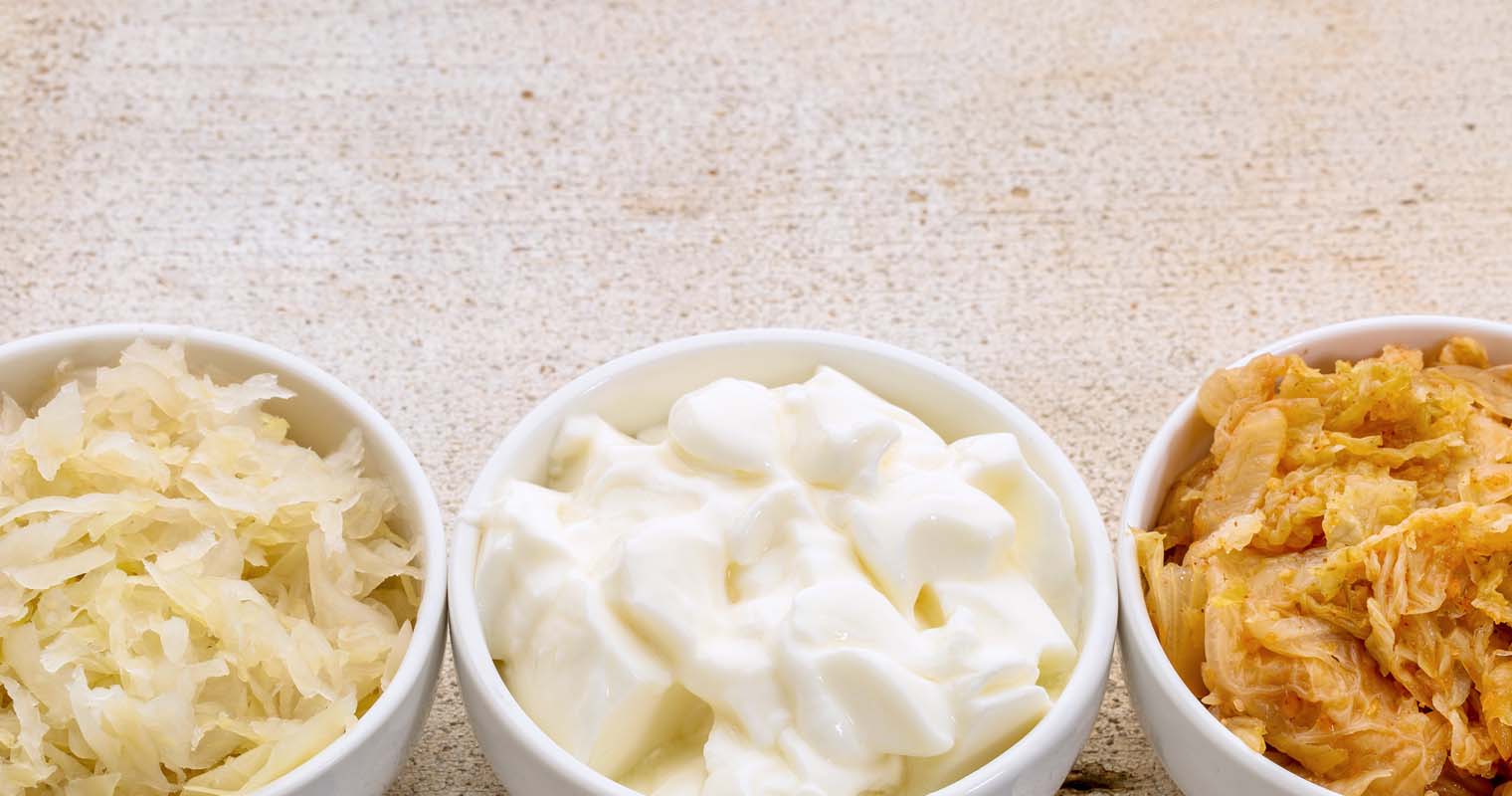
Topical Probiotics
BLACK PAINT offers several probiotic skincare products that help improve skin health. Our products not only contain healthy bacteria, but also protect the already existing bacterial flora of the skin.
The following BlackPaint probiotic-rich products are a great choice for better cleansing and nourishment of the skin.
This soap is a cleanser for dry and wrinkled skin. It contains silk and pearl powder that help enhance the collagen content of the skin. The soap is rich in botanical oil that nourishes the skin and keeps it hydrated. Probiotic component (lactobacillus) of White Paint Soap provides the added benefit of keeping skin protected from UV radiation, giving the anti aging effect.
Containing useful minerals and amino acids and supported by omega rich organic plant oil, White Paint Soap is the first step in your skincare regime.
Rose Honey is a nourishing and skin firming concentrated serum which is formulated to improve the texture of the skin and refine its pore size. It contains pure honey that exerts an antioxidant effect on the skin. It also helps improve the sebum secretion, hence control oil production by the skin.
Rose honey is fortified with a probiotic called Lactobacillus. Because of probiotics, our Rose Honey doubles its effectiveness. This probiotic speeds up wound healing, slows oxidation, protects against bad bacteria and keeps your skin moist and plump.
Moreover, the anti-inflammatory effect of its ingredient – French Maritime Pine Bark Extract – provides enhanced skin tightening, and citric content provides anti-fungal properties to Rose Honey.
This one is a moisturizing balm for dry lips and eyes. The Moroccan gold argan oil in Argan Balm provides the moisturizing properties to the area balm is applied. Other moisturizing plant oils, such as shea butter, olive oil, and jojoba, are also added to the balm to provide best nourishing care to the skin.
Argan Balm is fortified with a probiotic called Lactobacillus. This probiotic increases the balm’s effectiveness. Also, this probiotic speeds up wound healing, slows oxidation, protects against bad bacteria and keeps your skin moist and plump. This balm is an excellent option for those with dry skin.
This cream performs two actions. First, it forms a layer between the skin and the external environment, and then it locks the applied nutrients in the skin.
Water cream contains various types of flower oils that create a veil between your skin and heavy coloring of your make-up to prevent color depositing. It also acts as a makeup primer.
Our new range of Water Cream is upgraded with human microbiome. It contains a probiotic called lactobacillus. This helps to reduce inflammation and promote wound healing. It also reduces exposure to UV and oxidative damage. It slows skin aging and keeps your skin moist and plump.
References:
https://www.ncbi.nlm.nih.gov/pmc/articles/PMC2892890/
https://www.ncbi.nlm.nih.gov/pmc/articles/PMC4045285/
https://sfamjournals.onlinelibrary.wiley.com/doi/full/10.1111/jam.12137
https://onlinelibrary.wiley.com/doi/10.1111/dth.13279
https://www.ncbi.nlm.nih.gov/pmc/articles/PMC5418745/#:~:text=By%20decreasing%20the%20counts%20of,effects%20resulting%20from%20acne%20therapies.
https://www.ncbi.nlm.nih.gov/pmc/articles/PMC5418745/
https://www.researchgate.net/publication/303459353_Probiotic_Fractions_a_New_Solution_to_Improve_Skin_Health_by_Strengthening_Barrier_Function_Enhancing_Skin_Hydration_and_Preventing_Inflammation



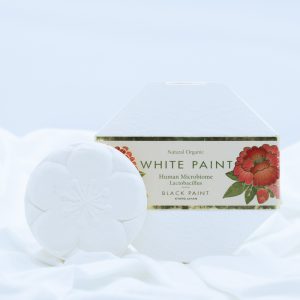 White Paint Soap:
White Paint Soap: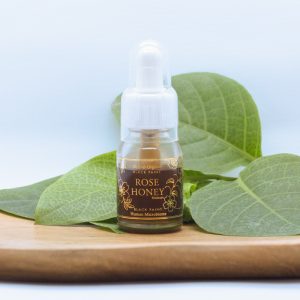 Rose Honey
Rose Honey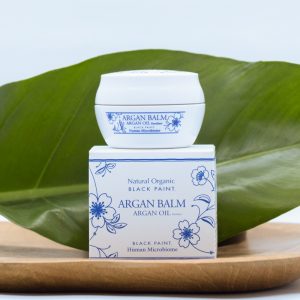 Argan Balm:
Argan Balm: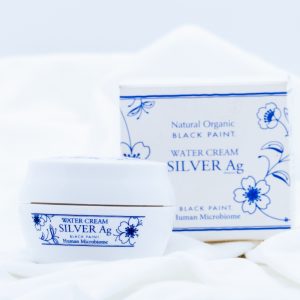 Water Cream:
Water Cream:




